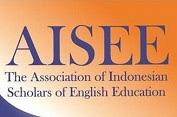A CORRELATIONAL STUDY: SELF-EFFICACY, LEARNING STRATEGIES AND STUDENTS’ DESCRIPTIVE WRITING PERFORMANCE
DOI:
https://doi.org/10.36706/jele.v12i1.69Keywords:
descriptive writing, EFL learners, learning strategies, self-efficacy, Writing performanceAbstract
This study investigated the relationship between students’ self-efficacy, learning strategies, and descriptive writing performance in an English as a Foreign Language (EFL) context. Conducted with 103 third-semester accounting students at the State Polytechnic of Ambon during the 2024/2025 academic year, the research employed a quantitative correlational design using purposive sampling. Data were collected through a writing self-efficacy questionnaire, a writing learning strategies questionnaire, and a rubric-based descriptive writing test. The instruments were validated and demonstrated high reliability (α = 0.91 and α = 0.88), with writing performance assessed through inter-rater scoring (Cohen’s Kappa = 0.85). Data analysis involved descriptive statistics, Pearson correlation, and multiple regression. Results revealed that while most students reported high self-efficacy and moderate use of learning strategies, their writing performance remained basic (A2 based on CEFR proficiency levels). Significant positive correlations were found between self-efficacy, learning strategies—particularly cognitive and metacognitive—and writing performance, though the overall contribution of these variables accounted for only 6.4% of performance variance. The findings highlight the need for instructional practices that integrate self-regulated strategies and scaffold writing development to bridge the gap between confidence and competence.
References
Abdollahzadeh, E. (2010). Undergraduate Iranian EFL learners’ use of writing strategies. Writing & Pedagogy, 2(1), 65–90. https://doi.org/10.1558/WAP.V2I1.65
Abdulhay, H. (2020). Examining the relationship between EFL university students’ goal orientations and self-regulation in writing. Journal of Asia TEFL, 17(2), 395-413, ISSN 1738-3102, https://doi.org/10.18823/asiatefl.2020.17.2.6.395
Allagui, B. (2024). A scaffolding intervention to improve self-efficacy in source-based argumentative writing. Frontiers in Psychology, 15, ISSN 1664-1078, https://doi.org/10.3389/fpsyg.2024.1454104
Amawa, I. G. N. E. V. (2022). ELT students’ metacognitive writing strategies. AMCA Journal of Education and Behavioral Change, 2(1), 13–21. https://doi.org/10.51773/ajeb.v2i1.139
Bandura, A. (1997). Self-efficacy: The exercise of control, New York, NY: W. H. Freeman and Company.
Banwart, H.M. (2023). Developing Writing Self-Efficacy: Perspectives from Agricultural Communications Students. Journal of Applied Communications, 107(1), ISSN 2476-1362, https://doi.org/10.4148/1051-0834.2427
Boardman, C. A., & Frydenberg, J. (2008). Writing to communicate: Paragraphs and essays (3rd ed.). White Plains, NY: Pearson Education, Inc.
Cancino, M. (2022). Assessing the impact of teacher l2 use on learner self-efficacy perceptions: The case of chilean elementary efl learners. Teflin Journal, 33(1), 27-46, ISSN 0215-773X, https://doi.org/10.15639/teflinjournal.v33i1/27-46
Chang, W.F. (2022). Resilience Among Students of Elementary School With and Without Learning Disabilities: Person-and Variable-Focused Approaches. Bulletin of Educational Psychology, 54(1), 57-84, ISSN 1011-5714, https://doi.org/10.6251/BEP.202209_54(1).0003
Chen, J. (2022). L2 learners’ self-regulated learning strategies and self-efficacy for writing achievement: A latent profile analysis. Language Teaching Research, ISSN 1362-1688, https://doi.org/10.1177/13621688221134967
CorrÍa, A.F. (2020). Examples of self-regulating cycles and their insertion in the process of musical self-learning. Musica Hodie, 20, ISSN 1676-3939, https://doi.org/10.5216/MH.V20.59153
McGee, K. (2019). Reducing writing anxiety by improving self-efficacy beliefs. . Learning to Teach Language Arts, Mathematics, Science, and Social Studies Through Research and Practice, 8(1), 32-38.
Henk, W., & Melnick, S. (1995). The Reader Self-Perception Scale (RSPS): A new tool for measuring how children feel about themselves as readers. The Reading Teacher, 48(6), 470-482.
Hilaliah, N. (2017). Students’ learning strategies in accomplishing writing tasks (Undergraduate Thesis, Universitas Pendidikan Indonesia). Repository of Universitas Pendidikan Indonesia. http://repository.upi.edu/28318/
Horwitz, E. (1986). Preliminary evidence for the reliability and validity of a foreign language anxiety scale. TESOL Quarterly, 20(3), 559-562.
Jinks, J., & Morgan, V. (1999). Children’s perceived academic self-efficacy: An inventory scale. The Clearing House, 72(4), 224-230.
Kałdonek-Crnjaković, A. (2021). Fostering literacy skills and self-efficacy in a Chinese EAL learner with dyslexia. Australian Journal of Learning Difficulties, 26(1), 1-20, ISSN 1940-4158, https://doi.org/10.1080/19404158.2020.1845218
Lau, S.M.C. (2020). Supporting immigrant students' academic and social integration: Esl and French college teachers' collaboration in promoting cross-linguistic teaching of language and strategies. Canadian Modern Language Review, 76(4), 293-312, ISSN 0008-4506, https://doi.org/10.3138/CMLR-2020-0001
Li, Q. (2024). A review of research on writing self-efficacy. International Journal of Education and Humanities, 14(3), 60–64. https://doi.org/10.54097/rwxhkw37
Liu, C. (2023). Incorporating a reflective thinking promoting mechanism into artificial intelligence-supported English writing environments. Interactive Learning Environments, 31(9), 5614-5632, ISSN 1049-4820, https://doi.org/10.1080/10494820.2021.2012812
Liu, X. (2025). Learning Critically and Confidently: A Correlation Study of the New Media Literacy and English Learning Self-efficacy of Junior High School Students. International Journal of TESOL Studies, 7(1), 88-104, ISSN 2632-6779, https://doi.org/10.58304/ijts.20250106
Liu, Z.M. (2024). Integrating large language models into EFL writing instruction: effects on performance, self-regulated learning strategies, and motivation. Computer Assisted Language Learning, ISSN 0958-8221, https://doi.org/10.1080/09588221.2024.2389923
Lu, Y.Y. (2022). Exploring the Effectiveness of a Scientific Inquiry Creative Workshop in Promoting Senior and Vocational High School Students’ Scientific Inquiry Self-efficacy. Journal of Research in Education Sciences, 67(4), 177-219, ISSN 2073-753X, https://doi.org/10.6209/JORIES.202212_67(4).0006
Maarof, N., & Murat, M. (2013). Writing Strategies Used by ESL Upper Secondary School Students. International Education Studies, 6(4), 47–55. https://doi.org/10.5539/IES.V6N4P47
Nevisi, R. Bagheri (2023). A Multi-Method Probe into the Effect of Self-Regulated Learning Strategies-Based Instruction on EFL Learners’ Essay Writing Performance, Self-Regulated Strategies, and Academic Self-Efficacy. Journal of Asia TEFL, 20(3), 614-636, ISSN 1738-3102, https://doi.org/10.18823/asiatefl.2023.20.3.7.614
Ozdowska, A. (2021). Using assistive technology with SRSD to support students on the autism spectrum with persuasive writing. British Journal of Educational Technology, 52(2), 934-959, ISSN 0007-1013, https://doi.org/10.1111/bjet.13063
Peñuelas, A.B.C. (2012). The writing strategies of american university students: Focusing on memory, compensation, social and affective strategies. Estudios De Lingüística Inglesa Aplicada (ELIA), 12, 77–113. http://institucional.us.es/revistas/elia/12/art_4.pdf
Shen, B. (2024). Chinese university students' self-regulated writing strategy use and EFL writing performance: Influences of self-efficacy, gender, and major. Applied Linguistics Review, 15(1), 161-188, ISSN 1868-6303, https://doi.org/10.1515/applirev-2020-0103
Stavropoulou, G. (2024). Students’ cognitive and metacognitive strategies in writing as a function of the perceived teacher goals, achievement-goal orientations and self-efficacy: a structural equation model. Journal of Psychological and Educational Research, 32(2), 67-83, ISSN 2247-1537, https://www.scopus.com/inward/record.uri?partnerID=HzOxMe3b&scp=85215284192&origin=inward
Teng, L.S. (2020). A mixed-methods approach to investigating motivational regulation strategies and writing proficiency in English as a foreign language contexts. System, 88, ISSN 0346-251X, https://doi.org/10.1016/j.system.2019.102182
Teng, L.S. (2020). Empowering learners in the second/foreign language classroom: Can self-regulated learning strategies-based writing instruction make a difference?. Journal of Second Language Writing, 48, ISSN 1060-3743, https://doi.org/10.1016/j.jslw.2019.100701
Teng, L.S. (2022). Explicit strategy-based instruction in L2 writing contexts: A perspective of self-regulated learning and formative assessment. Assessing Writing, 53, ISSN 1075-2935, https://doi.org/10.1016/j.asw.2022.100645
Teng, L.S. (2024). Individual differences in self-regulated learning: Exploring the nexus of motivational beliefs, self-efficacy, and SRL strategies in EFL writing. Language Teaching Research, 28(2), 366-388, ISSN 1362-1688, https://doi.org/10.1177/13621688211006881
Teng, L.S. (2024). Longitudinal interactions of L2 learners’ motivations and strategic behavior in strategies-based writing instruction A self-regulated learning perspective. AILA Review, 37(2), 188-214, ISSN 1461-0213, https://doi.org/10.1075/aila.24026.ten
Teng, M.F. (2023). Assessing academic writing self-efficacy belief and writing performance in a foreign language context. Foreign Language Annals, 56(1), 144-169, ISSN 0015-718X, https://doi.org/10.1111/flan.12638
Yabukoshi, T. (2024). Incorporating online writing resources into self-regulated learning strategy-based instruction: An intervention study. Journal of Computer Assisted Learning, 40(6), 3486-3504, ISSN 0266-4909, https://doi.org/10.1111/jcal.13081
Yang, G. (2024). An empirical study of the effects of intelligent cognitive diagnostic feedback strategy on L2 writing performance, epistemic structure, and transferability. Education and Information Technologies, 29(2), 2183-2216, ISSN 1360-2357, https://doi.org/10.1007/s10639-023-11905-3
Yang, G. (2025). An empirical study of a data-driven personalized diagnostic feedback strategy to enhance Chinese primary school pupils’ writing performance. Interactive Learning Environments, 33(1), 631-657, ISSN 1049-4820, https://doi.org/10.1080/10494820.2024.2353204
Zhang, Y. (2024). A review of English learners’ writing self-efficacy. Frontiers in Sustainable Development, 4(2), 12–22. https://doi.org/10.54691/n1cxf827
Zhou, Q. (2022). Exploring Chinese EFL undergraduates’ writing from sources: Self-efficacy and performance. Assessing Writing, 54, ISSN 1075-2935, https://doi.org/10.1016/j.asw.2022.100663
Downloads
Published
Issue
Section
License
Copyright (c) 2025 The Journal of English Literacy Education: The Teaching and Learning of English as A Foreign Language

This work is licensed under a Creative Commons Attribution-ShareAlike 4.0 International License.













